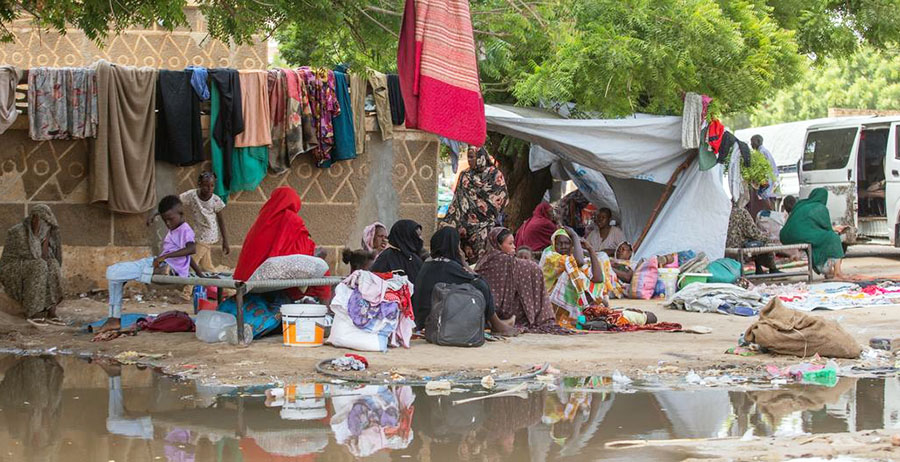
WHO: Sudans health system collapsing amid unprecedented displacement crisis
Moatinoon
The World Health Organization (WHO) has warned of the consequences of the collapse of Sudans health system and the declining capacity of neighboring countries to respond to the needs of the growing number of refugees arriving there, as the ongoing war continues to create a "humanitarian crisis of catastrophic proportions."
After more than two years of fighting, Sudans displacement crisis has become the largest in the world, with 14.5 million people forced to flee their homes, including nearly four million who have sought refuge in neighboring countries, including Egypt, South Sudan, Chad, Ethiopia, Libya, and the Central African Republic.
Between January and March of this year, 200,000 people fled across the Sudanese border into South Sudan, which is experiencing an escalating internal conflict, bringing the total number of refugees and returnees who have crossed since the beginning of the war to more than one million.
The World Health Organization (WHO) said the complex humanitarian situation, exacerbated by attacks on health facilities, continues to hamper vital health interventions, including responses to cholera, measles, and malnutrition.
Amid this bleak picture, the organization reported nearly 60,000 cholera cases in Sudan, resulting in more than 1,640 deaths, as it continues to support the country through multiple response pillars.
The organization added that malaria, acute respiratory infections, malnutrition, and acute watery diarrhea remain the most common health conditions in eastern Chad, with ongoing reports of suspected measles, hepatitis E, and diphtheria.
It also said it is supporting the response to malaria and cholera outbreaks in Ethiopia and hepatitis E outbreaks in the Central African Republic.
The World Health Organization (WHO) noted that Egypt continues to support new Sudanese arrivals, covering their healthcare costs through a dedicated program. It confirmed that by the end of April, 1.5 million new Sudanese arrivals had been registered in the country.
Key Challenges
The organization confirmed that it faces numerous operational challenges in responding to these crises, including a recently worsening funding gap, which is forcing many of its partners to suspend operations and hampering the response.
It added that ongoing hostilities, including attacks on health facilities, threaten security on the ground, causing further displacement and increasing challenges in responding to needs, controlling infectious diseases, and delivering essential medical supplies and other humanitarian assistance.
In addition, it noted a lack of early warning, alert, and response capabilities in Sudan and refugee-hosting countries, hindering the monitoring of internal and cross-border disease transmission and the ability to make evidence-based operational decisions. The organization also confirmed a shortage of medical personnel and limited access to water and hygiene supplies.

